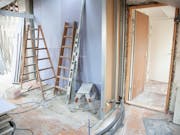Audits are essential tools for reviewing the efficiency and effectiveness of operations, and are typically required to stay compliant with food safety regulations.
A successful audit will capture the regulatory compliance of your business, including ensuring that best practices are being followed, all risks are properly managed, and internal operations are following stated procedures.
Prior to the COVID-19 pandemic, compliance audits had to be conducted in person. Fortunately, many regulatory agencies, such as the Global Food Safety Initiative (GFSI), have recognized that the pandemic has introduced new difficulties that businesses cannot ignore. As businesses tried their best to remain compliant, the GFSI introduced the option for remote food safety audits.
According to the new GFSI guidelines, compliance audits may now be partially conducted remotely, a new ruling that will last beyond the pandemic. Other certification schemes, such as FSSC 22000 and SQF, have made similar adjustments.
What does this mean? Simply put, organizations throughout the food manufacturing world will benefit from adopting the right best practices for conducting remote audits.
An Online Alternative Created Out of Necessity
It’s safe to say virtually all businesses experienced some sort of disruption from the COVID-19 pandemic — with the food industry being no exception.
The GFSI ruling for allowing remote audits is predicated on the same principle of in-person audits: to obtain credible evidence that illustrates that your company is within compliance with relevant regulations. The only difference is that information is collected remotely, rather than through traditional means.
All food manufacturers must determine the exact requirements for remote audits provided by the regulatory authorities. Most regulations have been updated to reflect remote audits, but you should verify the exact requirements for a valid remote audit from the regulatory authority.
Inherent Issues and Benefits of Remote Audits
GFSI only recognizes audits that are 50% in-person and 50% remote, or another ratio where the remote section is less than 50%. This is most likely true with other regulatory authorities, but you’ll need to obtain the exact rulings that apply to your organization.
Why can’t audits be entirely remote? The GFSI understands inherent issues and limitations with remote audits that call for at least half of the audit to be conducted in person. This is partially because the idea of remote audits is new, but also because there are some areas that simply can’t be audited remotely.
Problems with Remote Audits to Be Aware Of
There are some issues with remote audits that the industry is not able to overcome, such as:
- Limits of technology: Remote audits rely on cameras that are live streaming the feed to the auditor, a practice that is much different than an in-person audit. If the camera can’t see it, neither can the auditor. Additionally, streaming issues can result in poor camera quality, which might result in the auditor missing or misinterpreting something.
- Time concerns: Scheduling or time zone concerns can result in difficulty completing the audit. This problem won’t apply to every business, but depending on the location of the auditor and the facility, it may be a notable hindrance to completing the audits.
- Legal liability: Many companies have policies about the usage of cameras within the facility, and some of these policies cannot be swept aside for an audit for legal reasons. This is common for parts of the facility that have private or proprietary information.

Benefits of Conducting Remote Audits
There are plenty of benefits to keep in mind as your organization adjusts to remote food safety audits:
- Abiding by COVID-19 guidelines: Remote audits allow your organization to follow local guidelines for COVID-19, such as social distancing, thanks to minimizing the number of people in the facility.
- Reduced cost: There’s no need to take on the travel expenses of the auditor, which can become quite notable depending on the location of both the auditor and facility.
- Flexible scheduling: Even though scheduling can be a drawback, it can also be a benefit. Remote audits can be conducted nearly on-demand if the auditor’s schedule allows for it.
Best Practices for Remote Food Safety Audits
Any company that’s opting for remote audits must consider the following best practices to ensure that the audit results are valid for maintaining compliance:
- Give the auditor information before the audit: Remote audits are most successful when the auditor is already familiar with the facility and relevant policies and procedures. Ideally, the auditor has already visited the facility, but short of that, you can provide the auditor with the relevant information about your facility ahead of time.
- Plan the audit internally: Careful planning is required on the part of the business being audited to make sure that the audit results showcase their compliance. The facility will need to collect all relevant documentation and determine how to best present it to the auditor. Any interviews with management or workers should be scheduled ahead of time. The technology used for the audit must be tested to guarantee it doesn’t fail during the audit.
- All video should be live: Plot a route for the audit and ensure that there is reliable internet access throughout the route. Auditors must have a clear view of the facility, which can be hindered if there is not enough WiFi coverage.

Prepare Ahead of Time with the Right Software
One key aspect of every audit is reviewing documentation related to the safety and cleanliness of the facility. Remote audits haven’t changed this.
Your organization can prepare for this by adopting the right software that empowers your employees to fully document their roles every day. When it’s time for an audit, you’ll need to produce this information to demonstrate compliance.
monitorQA’s mobile inspection software is designed to empower workers and safety managers with the tools they need to thoroughly document every safety inspection and walkthrough, ensuring your data is readily available for audits.
Are you looking to embrace the shift to remote food safety audits? Get in touch with our food inspection specialists today to see how our software can transform your inspections and audits.



